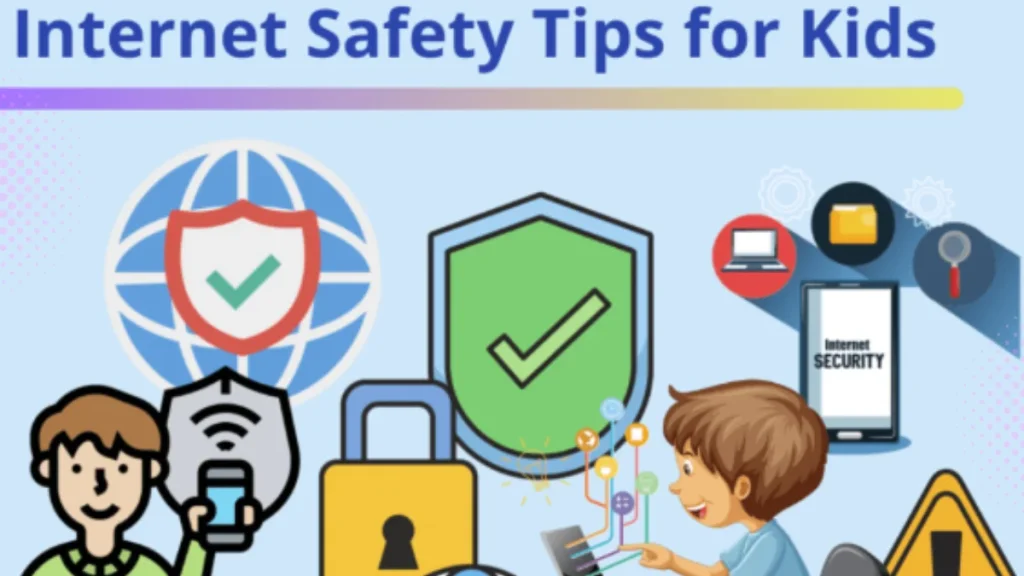Kids Online Safety is a growing concern, but the proposed Kids Online Safety Act could do more harm than good. Learn why this law may threaten internet freedom for everyone.
Kids Online Safety: Why the Kids Online Safety Act Is a Threat to Internet Freedom
Kids Online Safety is a topic everyone can get behind. After all, who doesn’t want to protect children from the dangers lurking online? But here’s the twist—while the intentions behind the Kids Online Safety Act (KOSA) sound noble, the reality is far more complicated. In fact, this bill could seriously mess with the very foundation of how we use the internet. And not just for kids—but for everyone.
So, what’s the catch? Why are experts, tech advocates, and even some parents sounding the alarm? Let’s break it down in simple terms so you can see why this Act might be more dangerous than helpful.

What Is the Kids Online Safety Act (KOSA)?
The Kids Online Safety Act is a proposed piece of legislation aimed at protecting minors from harmful online content. Sounds good, right? It suggests that tech companies should build platforms that automatically block or filter harmful content for anyone under 17. Parents get more control. Platforms get more responsibility. Win-win?
Not exactly.
Why It Sounds Good on Paper—But Isn’t
Let’s face it—Kids Online Safety is a no-brainer when you hear it in isolation. But laws aren’t made in a vacuum. The problem starts when you look closer at how the law defines “harmful content.” It’s vague, subjective, and could be twisted depending on who’s in charge. And vague laws? They’re ripe for abuse.
How KOSA Could Censor the Internet
Here’s where things get dicey. The law puts pressure on platforms to monitor and filter content that might be “harmful” to minors. But who decides what’s harmful? A graphic story about depression? LGBTQ+ support forums? Discussions on politics or identity?
To avoid penalties, platforms might just play it safe and block anything remotely controversial. That’s not Kids Online Safety—that’s a fast-track to censorship.

The Slippery Slope of Overregulation
Once platforms are forced to make judgment calls on content, it becomes a slippery slope. What starts as a filter for kids could easily morph into widespread content moderation for everyone. The result? A less open, less free internet. That’s the exact opposite of what the internet was built for.
Surveillance and Privacy Concerns
Let’s talk real talk—how do platforms know who’s a kid and who’s not? Age verification systems. Sounds simple, but it’s not. These systems often require ID scans, facial recognition, or biometric data. That’s not just creepy—it’s a privacy nightmare.
Imagine handing over your face or ID just to use Instagram. No thanks.
The Burden on Small Websites
Big tech giants might have the resources to comply with KOSA. But what about small websites, blogs, indie games, or community forums? They’ll either be forced to shut down, block users under 18, or risk huge fines.
In trying to create Kids Online Safety, the Act could end up silencing thousands of smaller voices.
Impacts on Marginalized Communities
One of the biggest fears among advocates is how this law could disproportionately impact marginalized groups. For example, LGBTQ+ youth often turn to online spaces for support and understanding. If platforms fear those spaces might be seen as “harmful,” they’ll shut them down.
That’s not safety—it’s erasure.
Chilling Effects on Free Speech
Platforms under threat of lawsuits or regulatory action will always choose self-preservation. That means taking down anything remotely controversial—even if it’s important. The result? A chilling effect where creators, educators, and even journalists pull back, fearing retaliation.
What Tech Experts Are Saying
Digital rights organizations like the Electronic Frontier Foundation (EFF) and Fight for the Future have publicly criticized KOSA. Their stance? That the bill gives too much control to vague authorities and could severely damage internet freedom.
When the people who build and defend the internet raise red flags, it’s time to pay attention.
Read more: The future of healthcare reform is now
Are There Better Ways to Achieve Kids Online Safety?
Absolutely. Instead of sweeping laws, we need:
- Stronger digital literacy education for both kids and parents.
- Better, more flexible parental controls that don’t rely on censorship.
- Platform accountability without mass surveillance.
- Supportive online environments, not punitive measures.
Real-Life Examples of Poor Censorship
Let’s not forget Tumblr’s infamous adult content ban. It wiped out not just adult material but tons of LGBTQ+ art, discussions, and education. KOSA could bring that level of overreach to the entire internet.

FAQs About the Kids Online Safety Act
What is the main goal of the Kids Online Safety Act?
Its goal is to make the internet safer for minors by limiting their exposure to harmful content. However, the execution raises serious concerns about overreach and censorship.
Could KOSA impact adults too?
Yes. While the law targets minors, platforms will likely overcorrect, leading to censorship and restrictions that affect all users.
Why are privacy advocates against KOSA?
Because it encourages platforms to implement invasive age-verification tools, risking user privacy and data security.
How might KOSA hurt marginalized communities?
By potentially flagging support groups and sensitive discussions as “harmful,” KOSA could silence spaces vital to LGBTQ+ youth and others.
Is there a better solution than KOSA?
Yes. Education, better parental tools, and tech transparency are more effective ways to promote Kids Online Safety without sacrificing internet freedom.

Conclusion: Don’t Trade Freedom for a False Sense of Safety
Sure, the internet isn’t always a safe place. But laws like the Kids Online Safety Act don’t fix the real issues—they just put a band-aid over a bullet wound. Worse, they come with a heavy price: the freedom to access, share, and speak online.
Want real Kids Online Safety? Let’s focus on solutions that empower, not restrict. That educate, not silence.
So before we cheer on any legislation with a feel-good name, let’s ask the tough questions. Who really benefits? Who loses? And what kind of internet do we want our kids—and ourselves—to grow up with?
Strong Call to Action:
👉 If you care about protecting free speech and creating a better internet for everyone, speak up. Contact your representatives, share this article, and support organizations fighting for digital rights. Let’s build a safer online world without sacrificing what makes the internet powerful.
read more: The Kids Online Safety Act Will Make The Internet Worse For Everyone
Disclaimer
This article is intended for informational purposes only and reflects the current understanding and critiques of the Kids Online Safety Act at the time of writing. It is not legal advice. For specific legal concerns, consult with a qualified attorney or policy expert.

